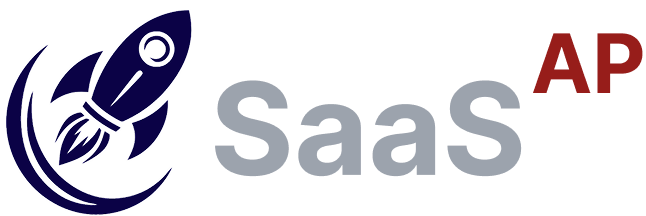Software as a Service (SaaS) for Real Estate Professionals has become a game changer in how agents, brokers, and firms manage listings, streamline communication, and close deals. But while developing a robust SaaS product is a significant step, effectively promoting it is what drives user adoption, revenue, and long-term success.
In this guide, we’ll break down strategic, practical, and proven methods to promote SaaS for Real Estate Professionals. Whether you’re a startup founder, marketing manager, or real estate tech innovator, this article is tailored to help you capture the attention of real estate audiences in the United States.
1. Know Your Real Estate Audience Inside Out
The first step to successfully promoting SaaS for Real Estate Professionals is to understand your audience deeply. U.S. real estate professionals have unique pain points — time constraints, shifting market conditions, client demands, and regulatory complexities.
Segment your target market into categories such as:
- Independent real estate agents
- Real estate brokers managing teams
- Property managers
- Real estate investors
- Commercial real estate firms
Use persona-based marketing to tailor messaging that directly addresses their day-to-day challenges. For instance, a solo agent might prioritize CRM automation, while a large brokerage might value analytics and team collaboration tools.
Tip: Conduct surveys or interviews with U.S.-based real estate professionals to validate your assumptions and fine-tune your product positioning.
2. Build a Conversion-Focused Website
A high-performing website is the foundation of all digital promotions for SaaS for Real Estate Professionals. It should not only inform but convert visitors into trial users or paying customers.
Key website elements:
- A clear value proposition in the hero section
- Easy-to-navigate UI with CTA buttons like “Start Free Trial” or “Schedule Demo”
- Product feature pages tailored to real estate tasks like lead management, property listing, client communications, etc.
- Testimonials and case studies from U.S. real estate professionals
- Integration compatibility with tools like MLS, Zillow, DocuSign, and Calendly
Also, optimize your site for SEO using on-page best practices, including schema markup, alt tags, internal linking, and the strategic placement of the keyword SaaS for Real Estate Professionals.
3. Leverage Real Estate-Specific Content Marketing
Content marketing drives organic traffic, builds trust, and positions your SaaS as a thought leader in the industry. When targeting SaaS for Real Estate Professionals, focus on creating educational and value-rich content tailored for the U.S. real estate ecosystem.
Effective content formats include:
- Blog posts: “Top 10 Time-Saving Tools for Real Estate Agents”
- Whitepapers: “The Future of SaaS for Real Estate Professionals in the U.S.”
- Webinars: “How Brokers Are Automating Lead Follow-Up with SaaS”
- Video tutorials: Feature walkthroughs, client interviews, and industry insights
Ensure your content includes the keyword SaaS for Real Estate Professionals naturally, about once every 200 words, and aligns with Google’s helpful content update and AI Overview preferences.
4. Partner with Real Estate Influencers and Associations
U.S.-based real estate influencers, brokers, and associations hold a lot of sway with your target audience. Consider collaborations with trusted names on YouTube, LinkedIn, and Instagram to review or demonstrate your software.
Partnership strategies:
- Sponsored guest blog posts on real estate platforms
- Joint webinars with real estate coaches
- Integration partnerships with established platforms like Zillow Premier Agent or KW Command
- Affiliate programs for real estate educators and influencers
When these trusted voices recommend your SaaS for Real Estate Professionals, your brand earns credibility and reach.
5. Offer Free Trials with Real-World Real Estate Use Cases
To attract real estate professionals, nothing beats the “try before you buy” model. But a generic free trial isn’t enough — tailor it specifically to real estate workflows.
Optimize your free trial strategy:
- Offer 14 or 30-day trials with no credit card required
- Pre-load the trial with mock real estate data: listings, buyer profiles, communication templates
- Use tooltips or interactive guides to showcase how SaaS for Real Estate Professionals simplifies day-to-day operations
- Automate trial-to-paid upgrade emails with proven real estate productivity outcomes
Real estate professionals are more likely to convert when they immediately see how your SaaS solves industry-specific challenges.
6. Use Paid Advertising to Target Real Estate Keywords
Paid media is a powerful way to gain early traction for SaaS for Real Estate Professionals. Platforms like Google Ads, Facebook, and LinkedIn allow precise targeting of real estate audiences in the U.S.
Top PPC and paid strategies:
- Run Google Search Ads targeting keywords like:
- “CRM for real estate agents”
- “Best real estate SaaS tools”
- “Real estate automation software”
- Use Facebook/Instagram ads to showcase visual features — e.g., mobile property notifications, task automation, or pipeline dashboards
- Test LinkedIn Sponsored InMail campaigns to reach brokers and commercial agents
Ensure your ads and landing pages use the keyword SaaS for Real Estate Professionals appropriately to maintain SEO and relevancy alignment.
7. Optimize for Local and Niche SEO
Local SEO can drive high-intent traffic from real estate professionals searching for region-specific solutions.
Local SEO tactics:
- Create location-specific landing pages (e.g., “SaaS for Real Estate Professionals in California”)
- List your SaaS on Google Business Profile
- Gather reviews from local agents and brokerages
- Publish local real estate success stories or use cases
Additionally, target niche real estate verticals — such as vacation rental managers or multi-family property investors — to own long-tail keywords in content and blog posts.
8. Attend and Sponsor U.S. Real Estate Events
Whether online or in-person, events are golden opportunities to demo your SaaS for Real Estate Professionals in action.
Opportunities include:
- Real estate expos (e.g., NAR Annual, Inman Connect, RealWorld Conference)
- Local association meetups and MLS events
- Hosting SaaS workshops for real estate tech bootcamps
- Sponsoring virtual summits focused on property tech (proptech)
Bring branded merchandise, schedule demos, and collect feedback live. You’ll build connections and refine your messaging based on real-time interactions with professionals.
9. Create Comparison Pages to Capture Bottom-of-Funnel Traffic
Real estate pros often compare tools before making a purchase. Capture these high-converting leads with comparison content.
Examples:
- “Top SaaS for Real Estate Professionals Compared”
- “[Your Product] vs. [Popular Competitor] for Real Estate”
- “Best Real Estate SaaS for Solo Agents vs. Teams”
These pages attract traffic at the decision-making stage and help guide prospects toward conversion.
Don’t forget to strategically include the keyword SaaS for Real Estate Professionals while maintaining a natural, user-friendly tone.
10. Build an Email Nurture Funnel with Real Estate Value
Email marketing remains a highly effective promotion tool. Once you’ve captured leads from webinars, trials, or content, keep them engaged with a structured nurture sequence.
Best practices:
- Use a welcome series to highlight your core benefits
- Share real estate productivity tips, market trends, and product updates weekly
- Offer exclusive demos or training sessions
- Showcase user stories from agents, brokers, or investors who’ve benefited from your solution
Make your messaging resonate by aligning it with the daily goals and metrics that matter most to real estate professionals.
11. Use AI-Powered Chatbots and Onboarding
Today’s real estate pros want quick answers. Use AI-powered chatbots on your website to address questions about SaaS for Real Estate Professionals, pricing, MLS integration, CRM features, and more — 24/7.
Additionally, use in-app AI onboarding to guide new users based on their goals:
- “Manage more listings”
- “Automate buyer follow-up”
- “Track agent performance”
This hyper-personalized onboarding builds trust and drives long-term retention.
12. Measure, Test, and Optimize Promotions Continuously
You can’t improve what you don’t measure. Make sure your promotional efforts are backed by analytics, heatmaps, and A/B testing.
Track:
- Conversion rates from trials and demos
- Organic keyword rankings for SaaS for Real Estate Professionals
- Bounce rates and time on page for your blogs
- Cost-per-click and cost-per-acquisition for paid campaigns
Tools like Google Analytics, HubSpot, and Hotjar provide the data you need to refine your approach, iterate your messaging, and maximize ROI.
Final Thoughts
Promoting SaaS for Real Estate Professionals in the U.S. takes a blend of strategic planning, content excellence, and consistent optimization. By understanding the real estate buyer’s mindset, creating targeted campaigns, and offering real value, you can grow your user base and become a go-to software provider in this competitive market.
In a field where time is money, your software should position itself as a productivity multiplier — and your marketing should demonstrate that value clearly and repeatedly.
FAQs on SaaS for Real Estate Professionals
SaaS for Real Estate Professionals refers to cloud-based software solutions designed to help real estate agents, brokers, and property managers streamline tasks such as client communication, property listings, lead management, and document handling from any device.
To market SaaS to real estate agents, focus on solving specific pain points like time management and lead conversion. Use content marketing, free trials, local SEO, influencer collaborations, and real estate-specific PPC campaigns to attract and convert real estate professionals.
Content marketing educates real estate professionals about your software’s value, builds trust, improves search rankings, and generates leads. Blog posts, tutorials, webinars, and case studies tailored to real estate use cases are especially effective.
Real estate professionals typically look for SaaS tools that offer CRM integration, listing management, automated follow-ups, mobile access, and analytics. Seamless MLS syncing and e-signature tools are also highly desired.
Increase conversions by offering a no-credit-card free trial, showcasing real estate-specific use cases, adding testimonials from agents or brokers, and using strong CTAs on your website like “Schedule a Demo” or “Try It Free.”

